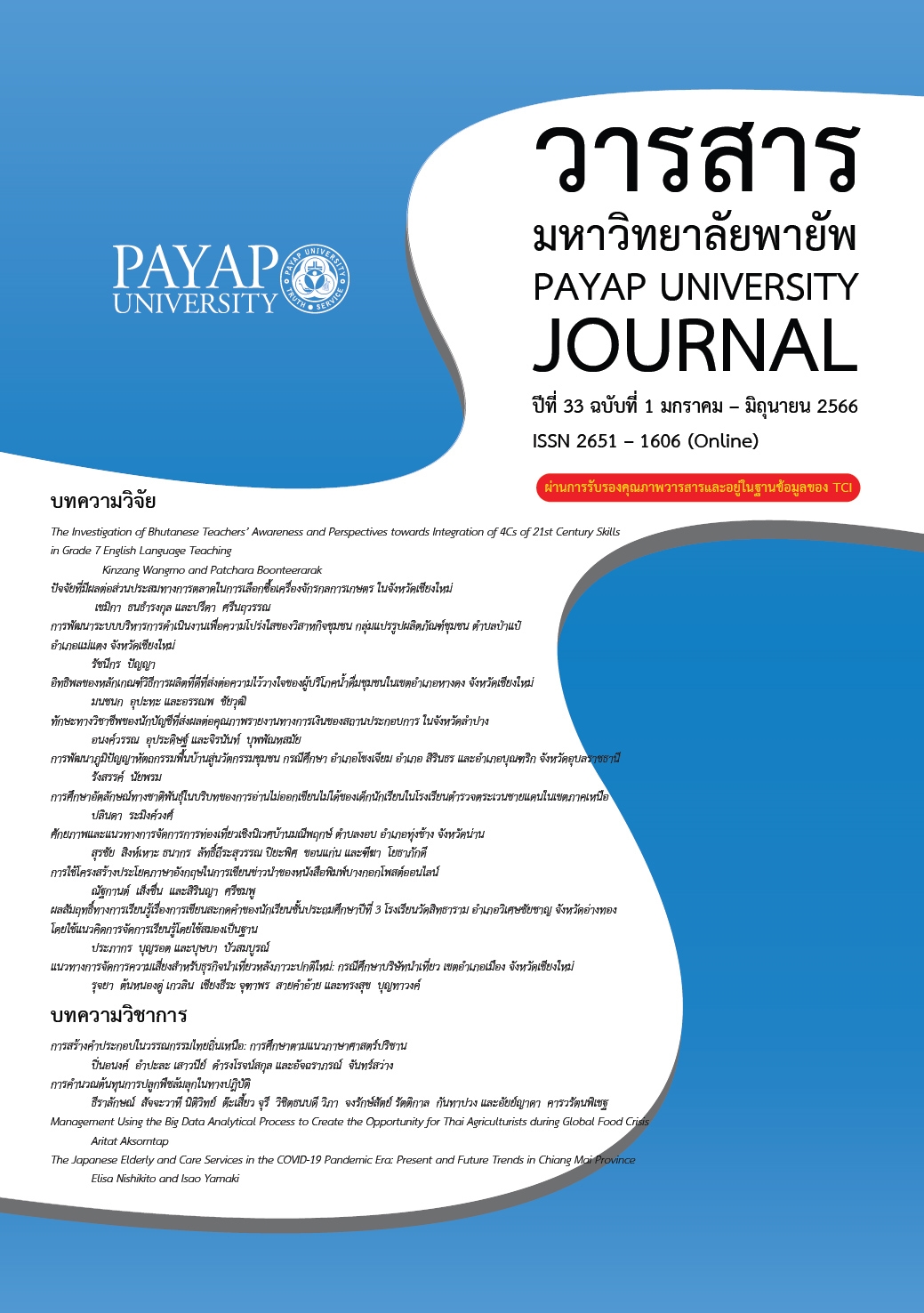การศึกษาอัตลักษณ์ทางชาติพันธุ์ในบริบทของการอ่านไม่ออกเขียนไม่ได้ ของเด็กนักเรียนในโรงเรียนตำรวจตระเวนชายแดนในเขตภาคเหนือ
Main Article Content
บทคัดย่อ
งานวิจัยนี้มีวัตถุประสงค์เพื่อ 1) ศึกษาบริบทข้อมูลอัตลักษณ์ทางชาติพันธุ์ของครอบครัว และนักเรียนในโรงเรียนตำรวจตระเวนชายแดนที่ส่งผลต่อการอ่านไม่ออกเขียนไม่ได้ของนักเรียน และ 2) นำเสนอแนวทางในการจัดการเรียนการสอนและการสนับสนุนการเรียนที่อยู่บนฐานอัตลักษณ์ ทางชาติพันธุ์และความเป็นพหุวัฒนธรรม ใช้วิธีการวิจัยเชิงคุณภาพ โดยการสัมภาษณ์แบบเจาะลึก การสนทนากลุ่มย่อย และการสังเกตการจัดการเรียนการสอนในระดับชั้นปฐมวัยถึงประถมศึกษาปีที่ 3 โรงเรียนตำรวจตระเวนชายแดนบ้านใหม่พัฒนาสันติ จังหวัดเชียงใหม่ และโรงเรียนตำรวจตระเวนชายแดนบ้านแม่ลางิ้ว จังหวัดแม่ฮ่องสอน ซึ่งมีนักเรียนเป็นกลุ่มชาติพันธุ์กะเหรี่ยง กลุ่มผู้ให้ข้อมูล คือ นักเรียน ผู้ปกครอง และครูผู้สอน
ผลการศึกษาพบว่า การอ่านไม่ออกเขียนไม่ได้ของนักเรียนทั้งสองโรงเรียน มาจากการใช้ภาษากะเหรี่ยงเป็นส่วนใหญ่ทั้งที่บ้านและที่โรงเรียน จึงขาดการฝึกพูดและเขียนภาษาไทย สื่อการสอนที่ไม่ตรงกับประสบการณ์ของนักเรียน ดังนั้น แนวทางการจัดการเรียนการสอนที่ควรนำมาใช้ คือ การสอนภาษาไทยแบบเน้นความหมาย เน้นผลิตสื่อการสอนในวิชาภาษาไทยที่สอดคล้องกับประสบการณ์ชีวิตของเด็กซึ่งเป็นแนวทางพหุวัฒนธรรมนิยม และในแผนการเรียนภาษาไทยสำหรับ แต่ละระดับชั้นยังมีการสอดแทรกกิจกรรมที่เด็กนักเรียนชอบ นอกเหนือจากการท่องจำหรืออ่านตามครู เพื่อยกระดับการเรียนรู้และการคิดของนักเรียนอีกด้วย


